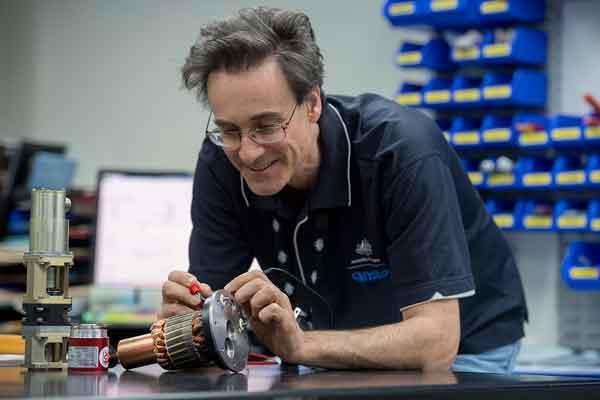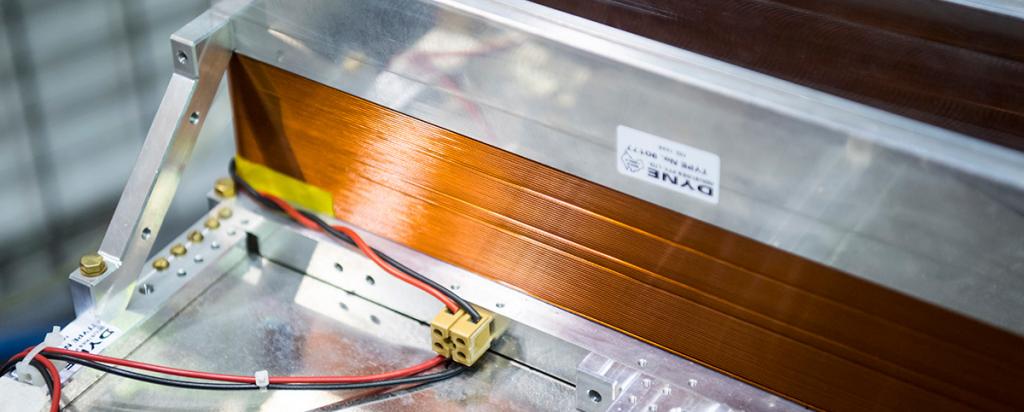

Services - Echidna
Sample environments available

Data Analysis
- Data analysis is supported through user training which is provided at the AINSE Neutron Scattering Winter School (http://www.ainse.edu.au/events2/winter_schools) and the ANSTO-Australian Synchrotron Powder Diffraction School.
- Data analysis for Echidna can be carried out using any standard Rietveld analysis software, e.g. GSAS, Fullprof, Topas, Jana, Rietica, Rietan, etc.
Data Correction and Reduction
Data correction and reduction is typically done by users or instrument scientists on the computer in the Echidna cabin.
- For support, contact the Echidna instrument scientists: echidna@ansto.gov.au
Data Access
The Australian Centre for Neutron Scattering promotes access to data collected during scientific experiments.
Access to data is available at ANSTO during the 3 year embargo period via :
Login to https://tardis.nbi.ansto.gov.au where you can search through your
data and download as required.
If you are unable to login, contact the User Office User.Office@ansto.gov.au
It is ANSTO policy that after a 3 year embargo period, data becomes publicly accessible. This can be viewed as "Public Experiments" at https://tardis.nbi.ansto.gov.au. Metadata relating to the experimental data is copied to Research Data Australia http://researchdata.ands.org.au. In encouraging this practice ANSTO has helped many researchers forge new collaborations.
Mail-in Service
The Australian Centre for Neutron Scattering has initiated a powder diffraction mail-in service on the Echidna high resolution powder diffractometer. It is intended for users who require high-quality data from a limited number of samples, for new users, or for users wishing to check samples prior to applying for a normal instrument time allocation.
Proposal guidelines
All users of the mail-in service must create a proposal on the Australian Centre for Neutron Scattering user portal at http://neutron.ansto.gov.au. No scientific justification is required, and proposals will be reviewed for technical feasibility and safety only. The proposal requirements are significantly abbreviated:
- Experiment page. Choose a science area and write a brief plain language description of the science in the “proposal summary” section. Indicate any intellectual property concerns.
- Researchers page. Skip this page.
- Instruments page. Select Echidna from the drop down list (it is the only choice but you have to actually select it). Enter any special sample handling etc requirements: the other fields can be left blank. On the Echidna page (opens when you add Echidna as an instrument)
- Enter the date you would like the data by in the “Desired starting date field”
- Enter 1 in the “No. of Days Requested” field
- Indicate desired wavelength (1.3, 1.6, 2.4 Å) and room temperature or cold (4K) data collection
- Samples page: add all samples to the table (follow the instructions on the page). Indicate whether you would like the sample returned or disposed by ANSTO.
- Figures page: skip this page.
- Submit page: submit the proposal when complete.
Sample guidelines
At this time, only powder samples are being accepted under the mail-in scheme. A full safety review will be carried out on the proposed samples before a mail-in proposal is accepted.
All samples must be packaged and shipped to and from ANSTO according to Australian and international transportation regulations. For researchers from Australian research organisations a transport container for each sample will be forwarded to you when your proposal is accepted.
The arrangements for the shipping of samples from other countries will be arranged on an individual basis. If you are unsure of the amount of sample required, please visit ECHIDNA specifications and use the neutron powder diffraction experiment planner at the bottom. Typically several grams will be needed.
Following the measurement we can dispose of the sample, return it, or you can collect it if you are planning a visit to ANSTO in the near future.
Data policy
Data collected using the mail-in service are subject to the normal ANSTO non-proprietary research policy: it is expected that scientific results will be published in the open literature with appropriate reference to ANSTO and use of the Echidna high- resolution powder diffractometer.